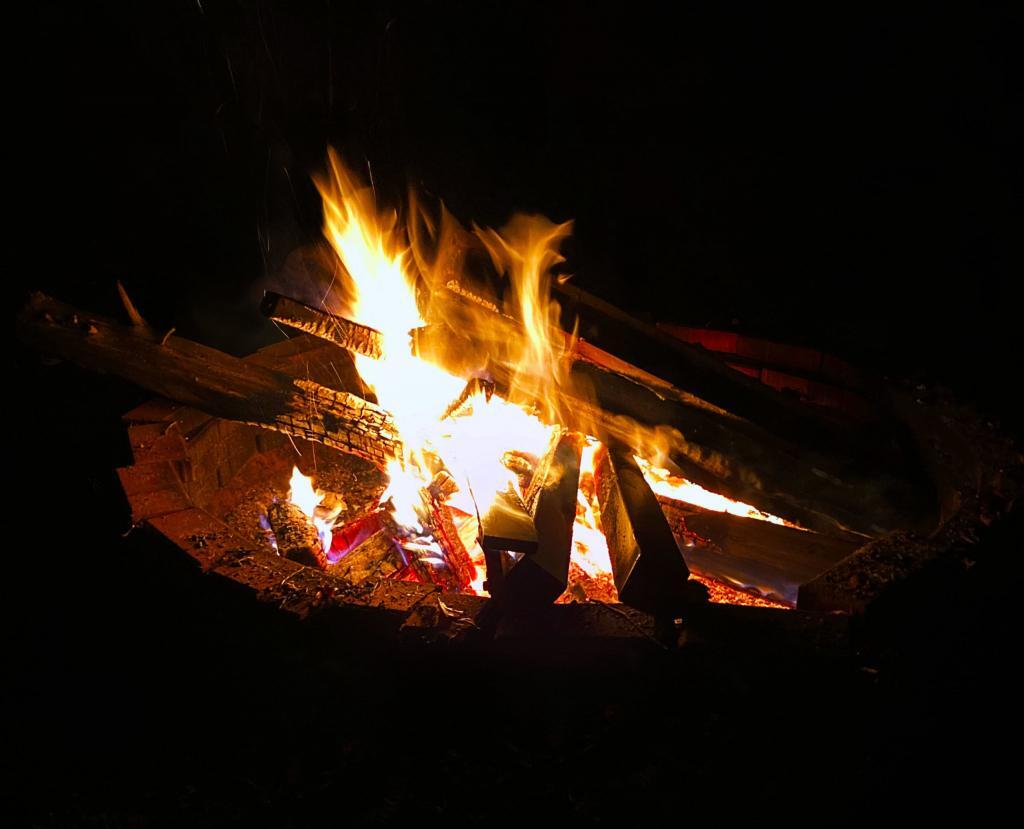
November 5th: Guy Fawkes Day
Aka Gunpowder Treason Day, Bonfire Night, Fireworks Night
In 1605 a plot to assassinate King James I by blowing up Parliament was foiled when guards found Guy Fawkes in a cellar below the House of Lords with barrels of gunpowder and a fuse. While there were others involved in the conspiracy; (Robert Catesby, Thomas Percy, Tom Wintour, and Jack Wright) Guy Fawkes is the name associated with the Gunpowder Plot, chiefly because he was caught with the actual gunpowder and fuse. Once people learned of the assassination attempt and its failure, celebrations sprung up around England with bonfires and the burning of effigies.
In 1606 the Observance of 5th November Act 1605, also known as the Thanksgiving Act, was passed by Parliament. This made the 5th of November a nation wide day of thanksgiving. Churches were to hold morning services to give thanks for the King’s survival and the defeat of the Catholic Church and its attempts to overthrow the Church of England. While these church services were performed around England, it was the celebrations afterwards that are remembered more. The 5th of November became synonymous with the lighting of bonfires, fireworks, and the burning of effigies.
While this tradition had died out in America by the 19th century it continued in England. Guy Fawkes Day eventually lost its anti-catholic leanings and instead was more of a day to get together with friends and family, attend parades, set off fireworks, and light bonfires and effigies. It became common for children to walk around towns with effigies of Guy Fawkes looking for fuel and/or money, singing rhymes such as “remember remember the 5th of November..” and “Penny for the Guy” in a similar fashion to Trick or Treating on Halloween in America.
While there are no direct mentions in the primary sources of the early Plymouth settlers celebrating Gunpowder Treason Day, there was a major event that occurred on the 5th of November in Plymouth Colony.
In 1623 there was a bad fire that broke out in Plymouth Colony. Bradford wrote that the fire was caused “…by some of the seamen that were roistering in a house where it [the fire] first began, making a great fire in very cold weather, which broke out of the chimney into the thatch and burned down three or four houses and consumed all the goods and provisions in them” The house where the fire started was also against the company storehouse. If the store house had burned their common provisions would have been destroyed and “the plantation had been overthrown”. Fortunately through the diligence of Bradford and some with him the storehouse and goods were saved. There was concern over the “rude company” that belonged to the two ships that were staying in the town. Bradford and his trusted company “suspected some malicious dealing, if not plain treachery” Later “when the vehemency of the fire was over, smoke was seen to arise within a shed that was joined to the end of the storehouse” when people ran over to put out the fire they “found a long firebrand of an ell long, lying under the wale on the inside, which could not possibly come there by casualty but must be laid there by some hand” Fortunately for Plymouth there were no further fires and the “rude company” of seamen eventually left with the ships. Emanuel Altham also mentioned this fire in a letter to his brother writing “…by a sudden fire one half of the plantation was burnt down by fire, upon the 5th of November last, wherein was burnt and spoiled the goods of all such that came this last time into New England..” Altham may have exaggerated the amount of damage as other authors of the event place the number of houses lost lower. Bradford mentions “three or four houses” and Captain John Smith wrote in 1624 that Plymouth contained “…Thirty-two dwelling houses, whereof seven were burnt the last winter…”
This was not the only instance of fire in Plymouth’s early history. In the first winter the roof of the common house burned off twice. The first instance occurred “…the 14th of January, in the morning about 6 of the clock the wind being very great, they on shipboard spied their great new rendezvous on fire”. (Mourt’s Relation) The description continues “…the house was fired occasionally by a spark that flew into the thatch, which instantly burnt it all up but the roof stood and little hurt. The most loss was Master Carver’s and William Bradford’s, who then lay sick in bed, and if they had not risen with good speed, had been blown up with powder, but, through God’s mercy, they had no harm.” (Mourt’s Relation) Then again on “Friday, the 9th [of Feb], still the cold weather continued, that we could do little work. That afternoon our little house for our sick people was set on fire by a spark that kindled in the roof, but no great harm was done.” (Mourt’s Relation)
Fire was an ever present concern with wooden houses and thatched roofs. In particular Plymouth’s militia would be called upon to help in instances of fire. However in 1622 “Fearing, also, lest the enemy at any time should take any advantage by firing our houses, Captain Standish appointed a certain company, that whensoever they saw or heard fire to be cried in the town, should only betake themselves to their arms and enclose the house or place endangered, and stand aloof on their guard, with their backs towards the fire, to prevent treachery, if any were in that kind intended. If the fire were in any of the houses of this guard, they were then freed from it; but not otherwise, without special command.” (Good News). Reading the description of the 1623 fire in Of Plimoth Plantation, we can see that this plan was carried out by the militia.
As mentioned before we do not have any records of the Pilgrims celebrating Guy Fawkes Day in Plymouth’s early years. However the Pilgrims certainly would have known about the Gunpowder Plot and about its conspirators including Guy Fawkes. Whether it was just a coincidence that the fire of 1623 happened on November 5th or if the seamen roistering were celebrating the date will likely never be known for certain. Either way it serves as a good reminder if you plan on celebrating the 5th with a bonfire, to not only have a “penny for the Guy” but also a fire extinguisher!
